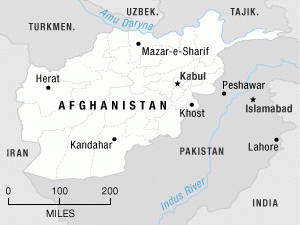This month, as we mark the mid-point of President Obama's first term as president, it is an appropriate time to evaluate his Administration's foreign policy and its ability to bring about peace. When President Obama gives his State of the Union address on Tuesday, January 25th, Bloomfield-based New Jersey Peace Action (NJPA) will watch, respond and issue a "report card" grading the president's first two years in office in those areas directly relating to NJPA's peaceful priorities:
-- nuclear disarmament
-- ending the wars in Iraq and Afghanistan
-- "moving the money" from the nation's bloated military budget toward funding for community programs
-- increasing reliance on diplomacy as opposed to military action
-- protecting civil liberties
On nuclear disarmament -" good news and bad news:
On December 22, 2010, despite many delays, the U.S. Senate ratified the new START Treaty. The vote was 71 -"26. Many grass-roots disarmament organizations, including NJPA, worked steadily over the last two years to achieve ratification. As late as November 30, 2010, members of NJPA delivered hundreds of signatures on a petition supporting nuclear disarmament to the Senate offices in Newark.
The Treaty re-establishes protocol for the United States and Russia to monitor each other's efforts at nuclear disarmament. The terms of the treaty require both countries to reduce their nuclear stockpiles by 25%, leaving each country with 1,550 nuclear warheads.
However, in order to gain support for ratification, the Obama A dministration made multiple concessions, including a pledge for an additional $184 billion for nuclear weapons modernization, an increase of approximately 20% over spending levels during the George W. Bush Administration. It is difficult to argue that a nation is serious about reducing its nuclear arsenal while it allocates such huge amounts to modernizing its arsenal.
On Afghanistan -" four more years of a failed strategy?:
The war in Afghanistan is already the longest war in U.S. history. As of this writing, it has cost the U.S. taxpayer over $366 billion, while the war in Iraq has cost over $767 billion. Altogether, over $1 trillion has been spent on both wars, with no end in sight. In 2009, over the strenuous objections of many, President Obama pledged to send more than 30,000 additional troops into Afghanistan. The cost was $33 billion. In Obama's Afghanistan Review: A Whitewash of a Disastrous Occupation, co-authored by Kevin Martin, Executive Director of Peace Action's national office and Phyllis Bennis, Fellow of the Institute for Policy Studies, that money could have been used to create 600,000 green middle-class jobs here at home--with $3 billion left over to help with the rebuilding of post-occupation Afghanistan.
President Obama also pledged to withdraw troops from the war-torn country beginning in July 2011, but he is now delaying that date, indicating that the U.S./NATO occupation of Afghanistan will continue until at least 2014! This extension was announced despite the fact that 60% of Americans polled understand that the war is "not worth fighting," and a war that we can neither win nor afford. Additionally, the Afghanistan Study Group (ASG), 50 experts on Afghanistan, has called for an alternative strategy of a negotiated settlement, instead of increased military presence.
South Mountain Peace Action (SMPA), a NJPA chapter, plans a January 19th forum titled "How to End the Afghanistan War" featuring Matthew Hoh, director of the ASG and former Foreign Service officer in Afghanistan who resigned in protest.
(Note: You can view every article as one long page if you sign up as an Advocate Member, or higher).





